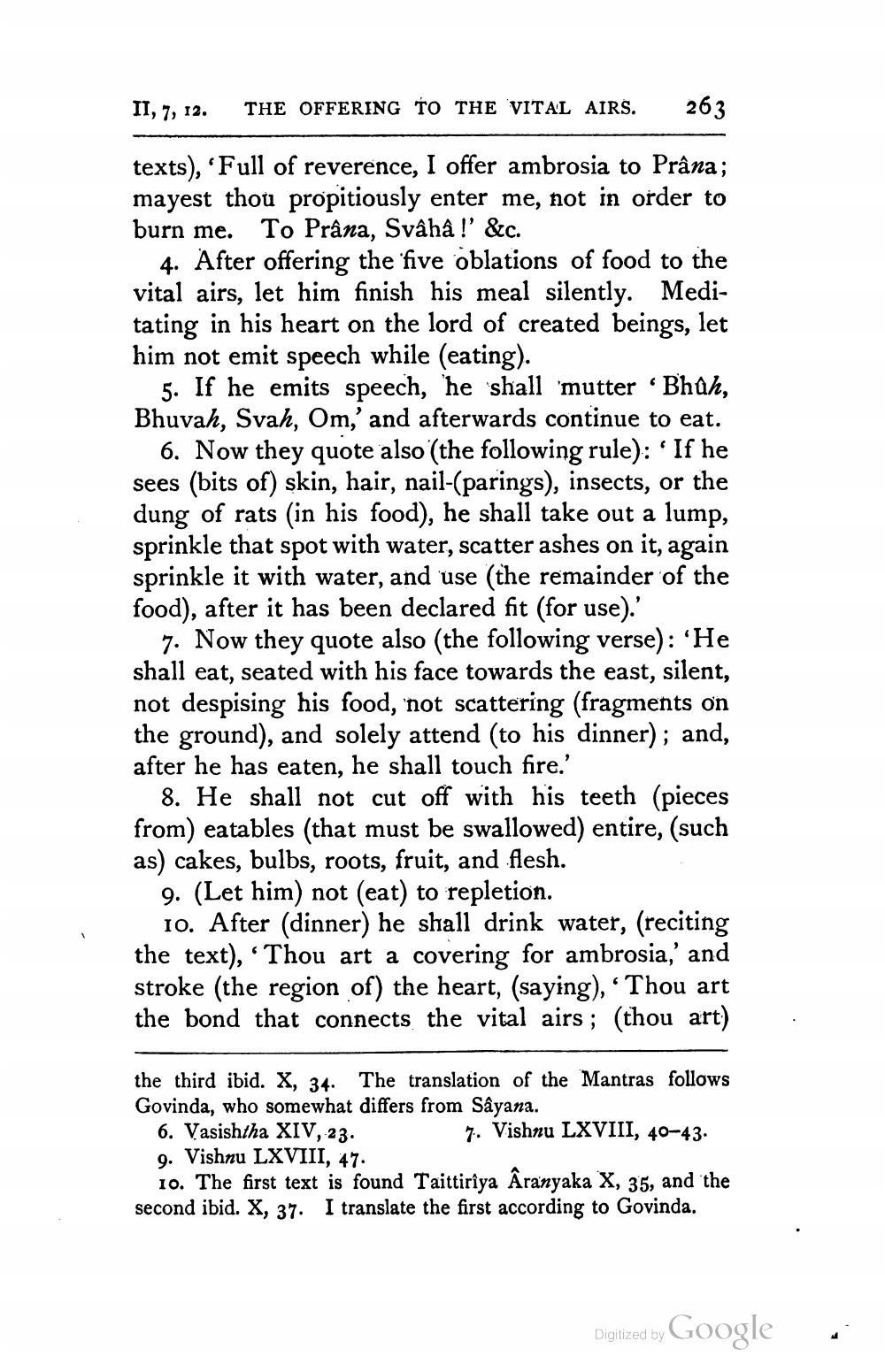________________
II, 7, 12.
THE OFFERING TO THE 'VITAL AIRS.
263
texts), 'Full of reverence, I offer ambrosia to Prâna; mayest thou propitiously enter me, not in order to burn me. To Prâna, Svâhâ !' &c.
4. After offering the five oblations of food to the vital airs, let him finish his meal silently. Meditating in his heart on the lord of created beings, let him not emit speech while (eating).
5. If he emits speech, he shall 'mutter Bhah, Bhuvah, Svah, Om,' and afterwards continue to eat.
6. Now they quote also (the following rule): 'If he sees (bits of) skin, hair, nail-(parings), insects, or the dung of rats (in his food), he shall take out a lump, sprinkle that spot with water, scatter ashes on it, again sprinkle it with water, and use (the remainder of the food), after it has been declared fit (for use).'
7. Now they quote also (the following verse): 'He shall eat, seated with his face towards the east, silent, not despising his food, not scattering (fragments on the ground), and solely attend (to his dinner); and, after he has eaten, he shall touch fire.
8. He shall not cut off with his teeth (pieces from) eatables (that must be swallowed) entire, (such as) cakes, bulbs, roots, fruit, and flesh.
9. (Let him) not (eat) to repletion.
10. After (dinner) he shall drink water, (reciting the text), 'Thou art a covering for ambrosia,' and stroke (the region of) the heart, (saying), 'Thou art the bond that connects the vital airs; (thou art)
the third ibid. X, 34. The translation of the Mantras follows Govinda, who somewhat differs from Sâyana. 6. Vasishtha XIV, 23.
7. Vishnu LXVIII, 40-43. 9. Vishnu LXVIII, 47.
10. The first text is found Taittirîya Aranyaka X, 35, and the second ibid. X, 37. I translate the first according to Govinda.
Digitized by Google
Digitized by




